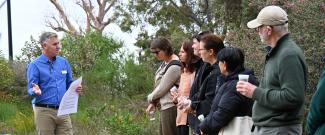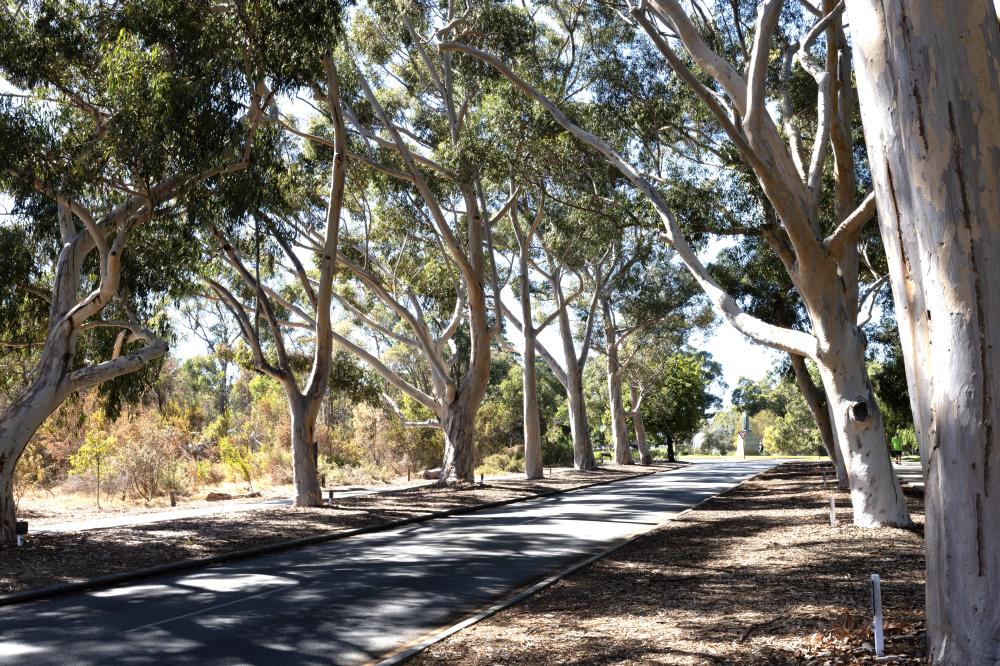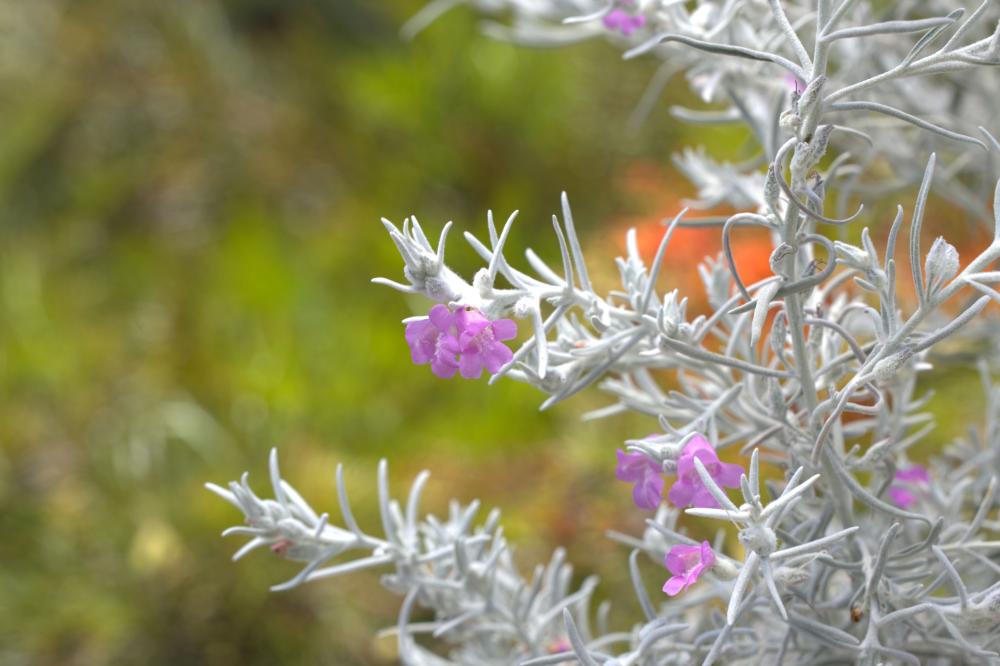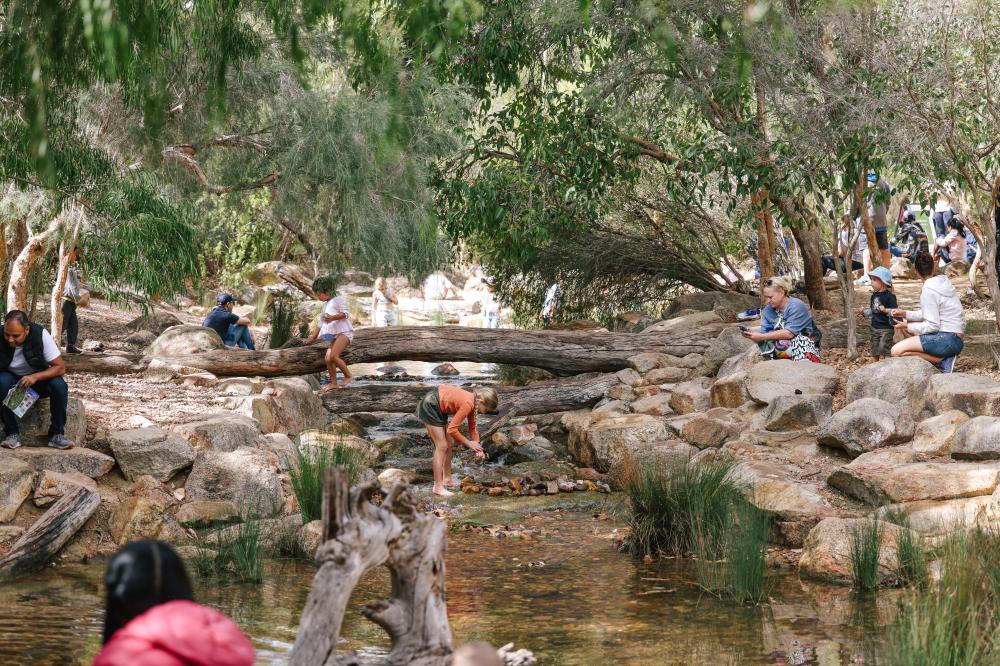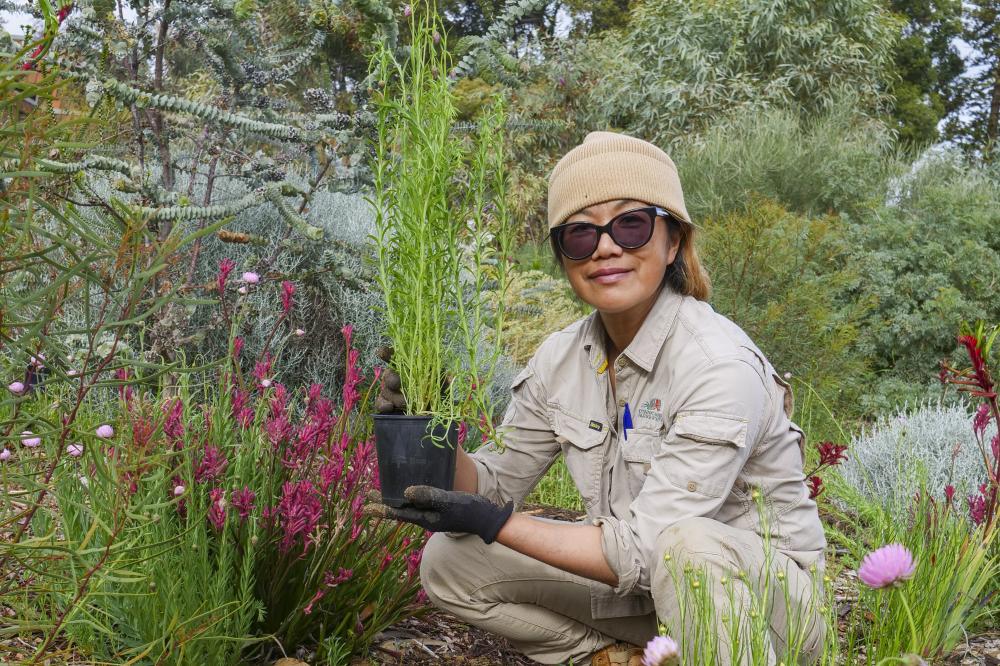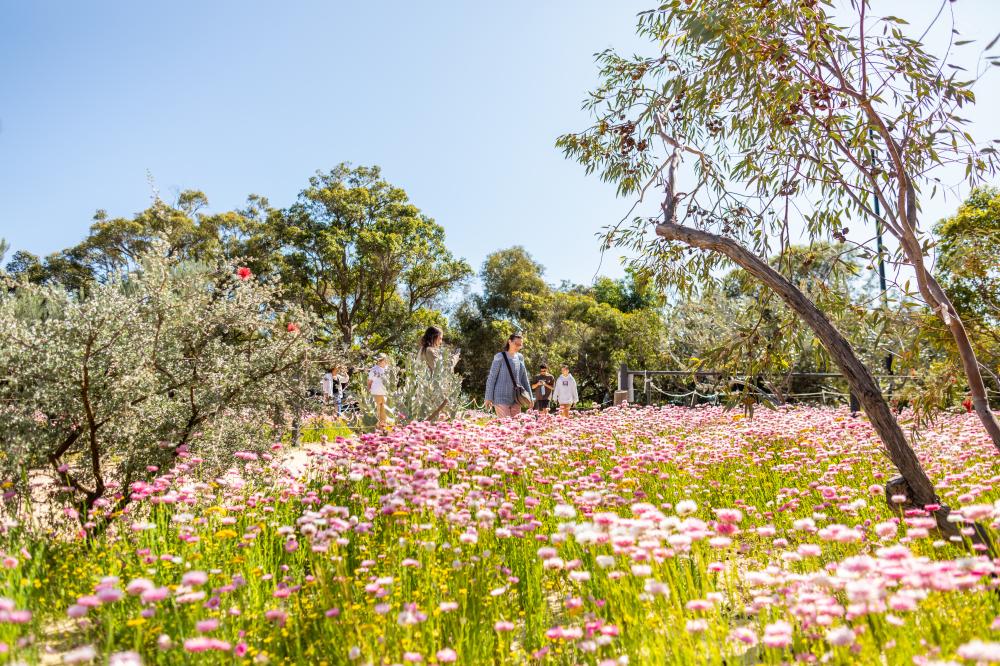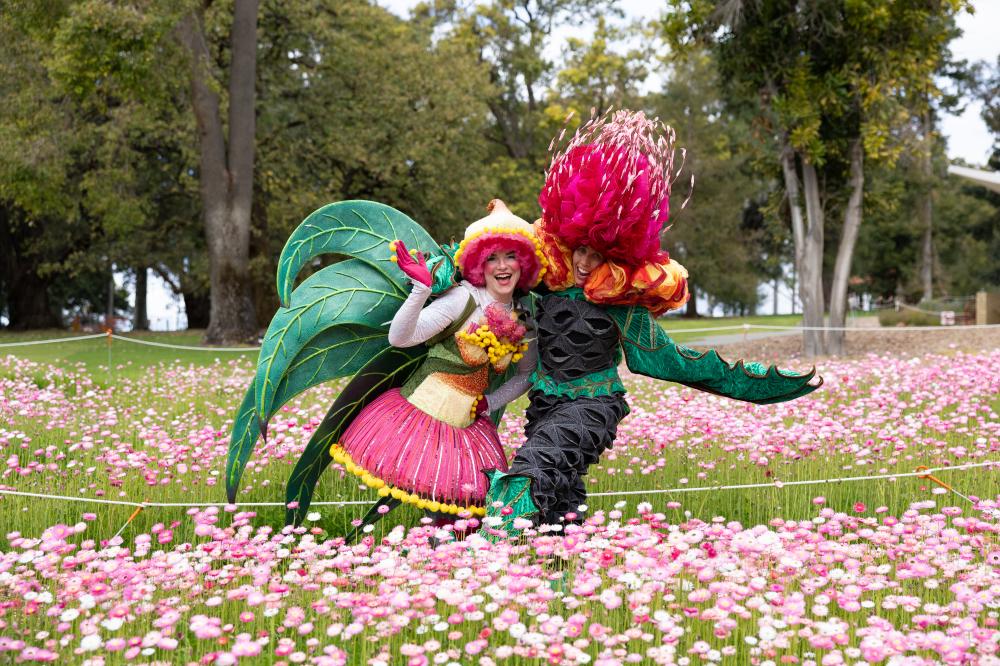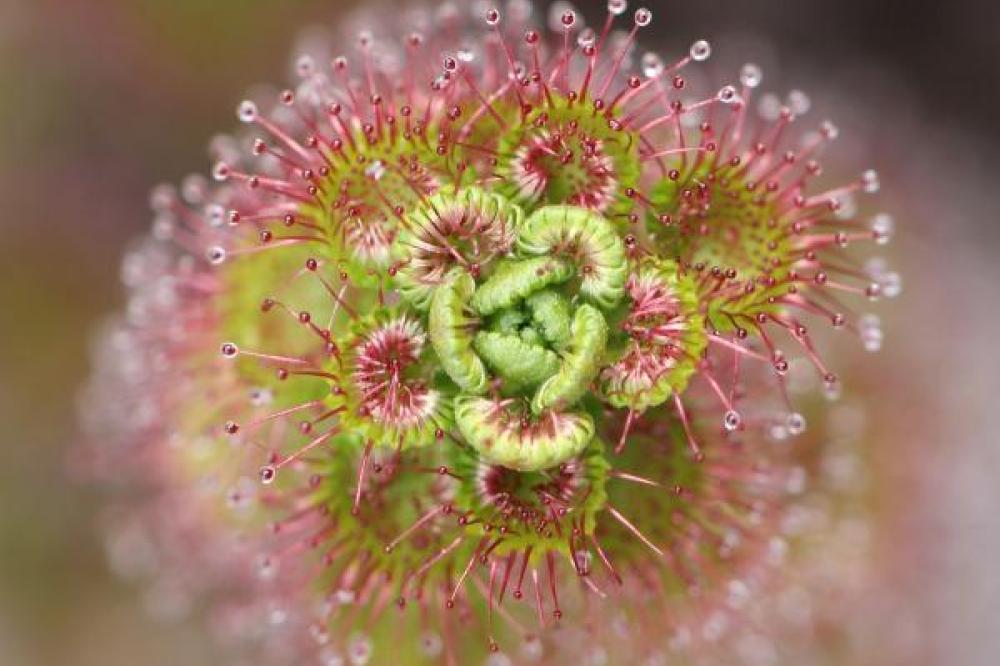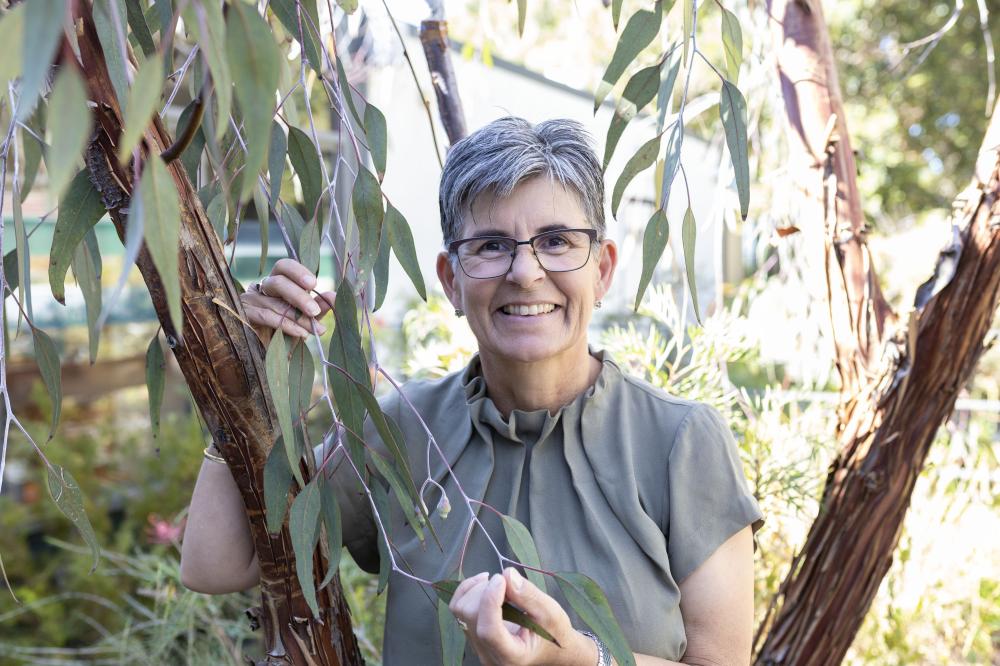National Science Week all wrapped up
National Science Week has wrapped up for 2024, and we’ve been taking the opportunity to reflect on the Kings Park Science team’s activities for the week.
On Tuesday, the team ran two guided walks through the Conservation Garden, with scientists telling the stories of how we are working to protect some of WA’s threatened species from extinction. Dr. Jason Stevens discussed research on plant species in mine site restoration, and how this research aims to help rehabilitate mine sites and restore plant communities to these landscapes through science and technology innovations. Dr. Stevens focused on the case studies of Lepidosperma gibsonii and Tetratheca erubescens; two endangered species which require specific soil compositions and environmental conditions to reproduce.
Dr. Ryan Tangney discussed the fire ecology of Commersonia apella, and how a wildfire in 2015 was key to the species’ repopulation in the south-west, and Dr. Bryn Funnekotter discussed how tissue culture and cryostorage enabled the translocation of Corrigin Grevillea plants, turning a population of six plants in the wild into a self-sustaining population.
All these species can be found in our ex-situ collection in the Conservation Garden, plus hundreds of other threatened and endangered species. The Kings Park Science team continue to research a number of these species in order to better understand them, and therefore, protect them from extinction.
During the week our social media highlighted that science doesn’t just take place in a laboratory. In studying the species mentioned in the guided walk and beyond, there is plenty of fieldwork involved, and the video below showcases just some of the remote locations our scientists travel to for plant research purposes. Research Scientist Dr. Emma Dalziell and some of the Horticulture team travelled to the Kimberley to collect plant materials, in a trip involving four wheel-driving, climbing boulders and travel by helicopter. Anything to save our species!
Finally to bookend National Science Week on Friday, Dr. Bryn Funnekotter participated in a panel discussion held by Plants for Space – ARC Centre of Excellence. Featuring experts in Agriculture, Environment and Nature, Innovation and Technology, and Space and Astronomy, the panel discussed questions from the audience on growing plants in space, focusing on the current science and challenges of growing plants in artificial environments. Dr. Funnekotter discussed how Australian native plants offer unique insights into growing plants in harsh environments, the comparison of Pilbara soils to the soil on Mars, and how sending bees into space to pollinate plants probably isn’t feasible (but pollination by hand is). The Kings Park Science team also hosted a display on tissue culture to showcase one of the main methods used by the team to propagate exceptional plants that cannot be stored in conventional seed banks.
Overall, National Science Week provided lots of opportunities to showcase and share how Kings Park Science is undertaking critical research to learn more about our native species and ensure they are preserved for the future. Keep your eye on our social media for more updates on the team’s research, and another eye on the upcoming Everlasting Kings Park Festival program, for which the scientists will be running more guided walks.
▶ VIDEO: Research Scientist Emma Dalziell and team collecting plant materials in the Kimberley
